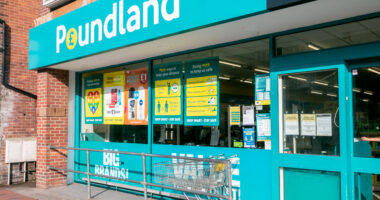ONE of the most important factors when applying for finance such as loans, credit cards or mortgages is your credit score.
Here is how to check and improve your credit rating to boost your chances of getting approved for the best deals.
If you click on a link in this story we may earn affiliate revenue.
Everyone has a credit score that is used by lenders or credit card providers when you apply to borrow money.
It is a combination of all your debts and a track record of how good you are at making repayments on time.
There are three main credit reference agencies (CRAs) in the UK that collate your financial data to provide a report and rating that can be accessed by lenders when you apply for products such as loans or mortgages.
The main CRAs are Experian, Equifax and TransUnion.
Lenders will refer to your credit report and score to see how reliable you will be as a borrower.
The higher your score, the better your chances of getting approved for large amounts of credit such as a loan or mortgage at decent rates.
Any arrears, late payments or bankruptcies will reduce your score, making it harder to get the best deals, while keeping up with repayments will boost it.
There are other factors that influence your score beyond just paying your bills on time though.
Here is what you need to know.
What is a good credit score?
Your score will be worked out based on the financial products you have and your payment history as well as other factors.
Each CRA will work out your score differently.
Experian rates users on a scale of zero to 999 and a good score is anything from 881 to 960.
Equifax’s scores go from zero to 1,000 and a good rating is anything from 531 to 670.
TransUnion’s credit ratings go up to 710 and a good score is anything in the range of 604 to 627.
More money guides
What is a bad credit score?
Your score can drop for a variety of reasons such as if you miss payments, are made bankrupt, receive county court judgements or just aren’t on the electoral register.
This often puts you in bad credit, making it harder to access the best finance deals.
A poor credit score is anything up to 720 on Experian, 530 on Equifax and 565 with TransUnion.
How to improve your credit score?
Pay your bills on time: Any late payments will be recorded on your credit report. This will push your score down and damage your creditworthiness.
Paying your monthly credit card bills or loan and mortgage repayments on time shows lenders that you are a reliable borrower and ultimately boosts your credit score.
Late payments can stay on your credit file for six years, which can have a long-term impact on your credit rating.
You can avoid late payments by setting up regular direct debits to pay your bills.
Get on the electoral roll: Your credit report isn’t just used to show how good you are at managing your money, it also helps proves who you are.
Registering to vote helps lenders verify your name and address, reduces the risk of fraud and makes it easier to get credit.
Correct mistakes: Errors on your report such as if missed payments are incorrectly shown or your address is out of date could be pushing down your score.
You can write to a CRA to get them to alter mistakes.
Monitor your rating: You are unlikely to know which CRAs a credit provider or lender will use so it is best to keep an eye on reports from all three.
Sign up for alerts so you can see when your score changes and if there are any errors to fix.
Cancel unused cards: Lenders will check your credit report to see how much debt you have such as card balances.
Too much may make a lender worry about your ability to repay.
Close any old credit or store cards as this reduces how much debt you are managing, while settling debts can also boost your score.
Soft searches: Making multiple credit applications can harm your credit score. Check how likely you are to be accepted for credit before making an application by doing a “soft search.”
Most providers and comparison websites offer eligibility checkers that let you see which cards or loans you are most likely to be accepted for by doing a “soft search” of your credit report.
This isn’t seen by any providers and won’t affect your credit rating. You then only need to apply for the one with the highest chance of success.
Beware of a partner’s credit history: It is not just how you manage your own money that impacts your credit rating.
Your score can also be impacted if you have a joint account with someone else who falls into debt. This can be tricky if you had joint finances with an ex.
You may need to write to the CRAs to register a letter of disassociation so your credit files are no longer linked after a breakup.
Show you can manage debts: You can’t show you have a good track record of managing debt unless you have some.
Not everyone will have a mortgage or need a loan but just starting out with a credit card and making the monthly repayments on time can show you are a reliable borrower and build and boost your score.
Paying your energy and mobile phone bills on time will also help.
Credit building cards: It can be hard to build your score back up once you are in bad credit. But a poor score can also make it harder to access the best deals.
You can start rebuilding your score and show you area reliable borrower with a credit builder credit card.
These are aimed at people in bad credit. The balance is often lower than standard cards and the interest rates are high if you miss payments.
But these cards help boost your credit rating as long as you pay your bill on time each month.
This could also improve your chances of getting decent credit deals in the future. Find out how to get the best cards for bad credit.
How to check your credit score
All three CRAs calculate your score differently so it is worth checking your report with each one.
Equifax and Experian charge £7.95 and £14.99 per month respectively to access your report and score.
Experian also has a 30-day trial.
Both will let you see your score for free but it is worth downloading your report as well to check any errors that could be influencing your rating.
TransUnion’s Credit Karma service gives you unlimited access to your report and score for free.
(AD) How to find the best cards for bad credit
TAKING out a credit card and using it responsibly is one of the best ways to help improve your credit profile.
Compare credit cards that are more likely to accept bad credit histories.
Find out more with Compare the Market.
Why has my credit score gone down
Your credit score can drop for a range of reasons.
Missed payments can push your score down.
It may also drop if you have just applied for credit or settled or closed an account.
There may be more drastic reasons such as if your identity is stolen and someone applies for credit in your name or there could be mistakes on your report.
Not all reductions are a cause for concern, especially if you have a high rating, but it is always worth checking if there is anything you need to fix.
What credit score do you need for a mortgage?
There isn’t a specific credit score you need for a mortgage
Ultimately, the higher your score, the better your chances of accessing larger loans and the best deals as lenders will be more confident about your ability to repay.
There will be other factors though such as meeting the lender’s affordability and income requirements and passing its stress tests.
Find out how to access the best mortgage deals.
Does Klarna affect your credit score?
Buy-now-pay-later (BNPL) schemes such as Klarna let shoppers delay paying for items and spread the costs over a set time period.
This is a form of credit but BNPL providers say they only do a soft search of your report so it shouldn’t show up to other lenders.
Your credit score will only be hit if you miss a payment.
This will go down as a late payment on your credit report and, like missing other debt repayments, could reduce your score.
You may also have to pay late fees or interest, which will harm your rating if missed.
Your score could get damaged further if you fall into arrears.
Check the terms and conditions if using a BNPL scheme so you are clear on how much and when you have to repay.
Important Information
News Group Newspapers Ltd is an Introducer Appointed Representative of Compare The Market Limited, which is authorised and regulated by the Financial Conduct Authority (FRN 778488). Compare The Market Limited, registered in England and Wales No. 10636682. Registered Office: Pegasus House, Bakewell Road, Orton Southgate, Peterborough, PE2 6YS.









